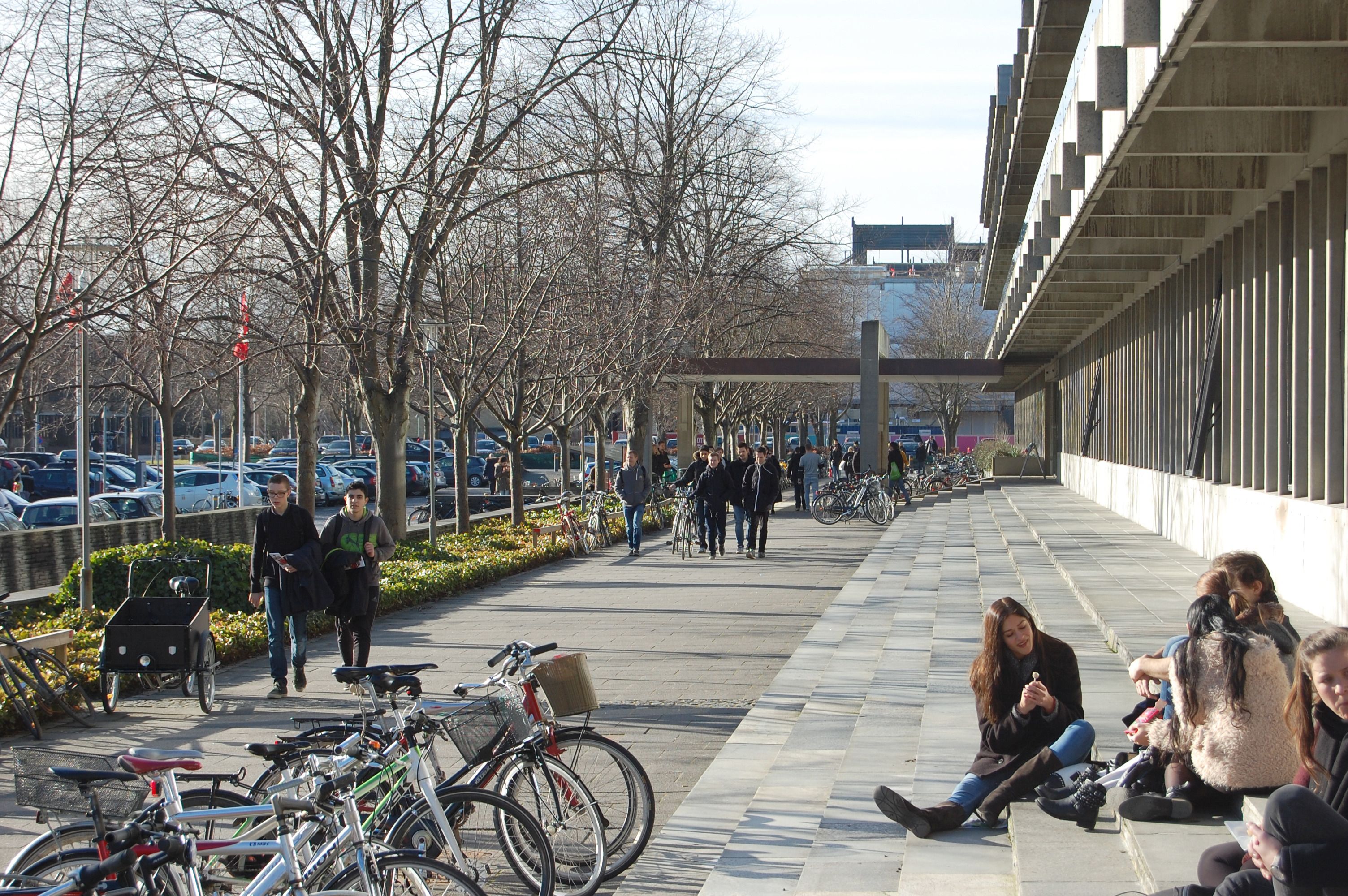The Technical University of Denmark (DTU) is one of the most reputable institutions in the country, known for its academic excellence, research, and industry connections. Its commitment to innovation and sustainability makes it a highly popular choice for students in Denmark interested in pursuing technical and scientific fields.
DTU encompasses multiple campuses and research facilities throughout Denmark. Its largest and main campus is located in Lyngby, a municipality in Copenhagen. There are around 8,000 undergraduate students in total across various academic programs in fields such as engineering, technology, natural sciences, and more.
A popular choice
Professor Anders O. Bjarklev, President of DTU, explains that “today, at least one out of three students at DTU are internationals.”
”Some 20 years ago, the university’s management decided that if we want to position ourselves as a leading technical university, it should not just be on a national, but an international scale,” he said.
According to him, DTU currently has 5598 master students of which 2655 are international students.
There are 1683 ph.d.-students of which 815 are international.
Moreover, DTU sends about 700-1000 Danish students on exchange to different countries yearly.
DTU also offers a wide range of programs in English, making it accessible to international students and further diversifying its student body. This international environment appeals to many Danish students who want to experience a global perspective.
“One of our biggest education programs in bachelor’s is in English, while all the master’s programs are in English, which is quite unusual for a university in Denmark.”
International at its core
“We are happy to receive more and more expat students every year because they create a diverse student environment within our university, which is also beneficial for Danish students who cannot travel during their studies. Due to such an environment, there is still a possibility to establish networks, make friends, and gain knowledge about the world,” he continued.
Anders Bjarklev believes “it is essential for a small country like Denmark to open its eyes to the different ways of living in the world. How we are used to doing things here is not necessarily the best or the most preferred.”
“It’s not just Danish or English; you will hear a lot of languages in the corridors, classrooms, cafeterias, labs, and other places of DTU. I have myself picked up few words of Spanish and taught words in Hindi and Marathi (Mumbai’s language) to my Danish friends,” says Shubhham Sudesh Choudhari, 23, from India, currently doing a Master’s in Transport and Logistics from DTU.
Many stay in Denmark
Despite having many international students, the university’s President confirmed that they never advertised in any of its 114 nationalities.
“What we do is have a strong collaboration or partnership with several preferred universities worldwide. Through exchange programs, we get to know their students and staff, and they get to know ours. We are also part of the Nordic Five Tech University Alliance and EuroTech Universities Alliance,” says Anders Bjarklev.
The University emphasizes that students are treated well. When they return home, students are encouraged to tell their family, friends, and colleagues about DTU. It means more international applications.
About 40 percent of DTU’s former expat students still live and work in Denmark.
“They’re probably fully integrated in Danish society. We want to educate more Engineers and technical students who can benefit the Danish and other societies,” says Anders Bjarklev.
DTU gives about 100 fully-funded merit-based scholarships to international students in different fields every year.
Work opportunities
The volatile financial situation in many countries makes it hard for students to finance their studies and life in Denmark. Due to inflation and other economic factors, students from third-world countries mostly face this issue. The devaluing of their home currencies makes the exchange rates high. Even a large sum of money back home is insufficient for their finances in Denmark.
Expat students mostly have a simple lifestyle. They mostly prefer university accommodation, which is cheaper than renting independently. Despite keeping the finances low, a part-time job is a must.
DTU provides international students with jobs on campus. Shubham Choudhari, a master’s student from India, also works part-time at the university’s international department, which has greatly helped him with his expenses.
“Considering that non-EU students must pay fees to study at DTU, it can easily get costly. I think Denmark, in general, is also quite expensive. When I came here for the first time, I spent my parent’s money, but now that I’m doing a student job, which allows me to have my own money and manage my finances well.”
Shubham Choudhar recalled that despite being expensive, he chose Denmark for his master’s degree over the Netherlands and the UK because DTU’s Transport and Logistics program was “unique,” and through electives, it allowed him also to study business and management courses.
Besides this, DTU provides its students the opportunity to collaborate with various companies and organisations, both in Denmark and internationally. Allowing them to do internships, collaborative projects, and cooperative education programs where the students can do paid work with different companies in their field of study.
Everybody speaks English
Irene Maria Rubio Mancebo, 26, from Spain, currently doing a Masters in Sustainable Energy at DTU, works part-time on campus. She suggests that students should be open to new opportunities.
“Almost everyone here speaks English, and that is something amazing. As students, you will have a lot of job opportunities since the university hires many student helpers. So be ready for it and be open-minded,” she said.
“DTU does not differentiate between Danish and expat students. If you apply for a student job and do not get one, it does not mean it is because you’re an expat. You might not be the most suitable person for that role. In all aspects, you can expect to be treated equally as this university,” Irene Maria Rubio Mancebo added.














